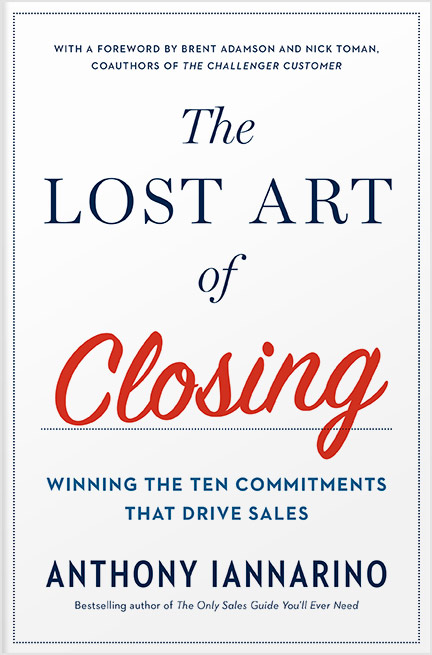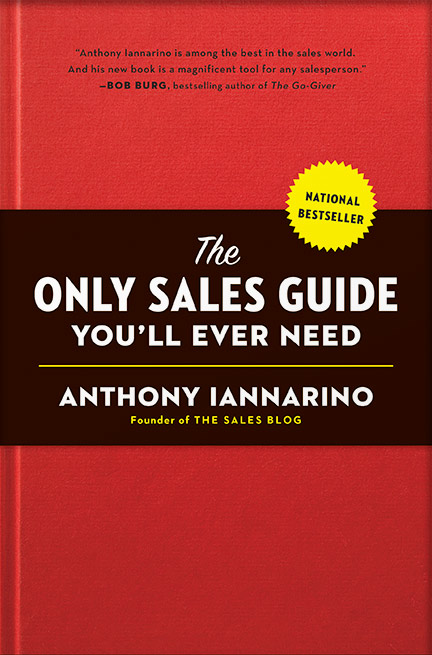There are certain things that make you an individual contributor. Most of what you do, and most of the results you produce are the result of your individual effort. But many of the outcomes you produce are the result of the effort a collective—or should be. The balance here between individual and collective is where you will find your greatest performance. Here is how to improve as an individual contributor.
It would be easy to argue that all of these things are collective, but where they are mainly individual, I’m listing them as such to make a point (or more accurately, two points).
Your Individual Effort
There are some activities and outcomes that belong to you alone. A role in sales comes with more freedom than most other roles, and that freedom needs to be tempered with a great deal of self-discipline. Many a talented salesperson has failed due to their inability to mange themselves. It isn’t all that uncommon to fins less talented and highly disciplined salespeople outperforming their peers. Here a few of the things that are mostly individual.
Prospecting
The amount of time you spend prospecting, the effort you put into opening the new relationships to create new opportunities, and your overall approach to acquiring meetings is individual. You might spend more time than your peer group, work harder at gaining new meetings, and use a modern approach that allows you to effectively trade the promise of value for your dream client’s time. (See The Lost Art of Closing) No more pushy sales tactics. The Lost Art of Closing shows you how to proactively lead your customer and close your sales.  The opposite is also true. You can do less, put forth less effort, and do what you believe to be easier, like sending email.
The opposite is also true. You can do less, put forth less effort, and do what you believe to be easier, like sending email.
This is in your control as an individual, and you do not need to rely on anyone else, nor should you, when it comes to prospecting.
Personal Development
Because you are the single asset you possess with which to produce results, you are responsible for improving that asset over time. If you are going to increase your competency, you are the one who has to decide to do so. You alone have to exert the effort to grow, and you have to do the work. There is no substitute for doing the work, and there is no one who can do it for you.
You have to be thoughtful enough to know where you need to improve, and serious enough to give growth your time and energy. You will become only become what you are capable of becoming when you commit yourself to doing the work. This is an individual endeavor. See The Only Sales Guide You’ll Ever Need)Learn Anthony's core strategies & tactics for sales success at any level with The Only Sales Guide You'll Ever Need
Accountability for Your Results
You alone are responsible for your quota. It doesn’t matter whether marketing generated the right leads. Nor does blaming missed goals on the fact that the economy contracted over the last quarter. So the big deal you were counting on experienced a Black Swan event that caused them to disengage right before they were committed to sign your contract. You were so close, too! There are always hard lessons for the individual contributor, especially when it comes to surprises.
It’s your number, and you are responsible for it (not that I haven’t seen top producers miss their number from time to time, especially when they are holding out hope on a big, unlikely deal).
The Collective
You are an individual contributor, but you are also part of a number of teams (or maybe you need to start looking at your role and how your team helps you succeed).
Your Professional Development
While it is your responsibility to develop both personally and professionally, you are much better leveraging the wisdom of the collective than trying to figure everything out on your own. There are people on your team that have experience that would benefit you. Some of the people on your team have made mistakes and can share with you how to avoid them. Others have things figured out, and have discerned how to have a conversation that both compels clients to change and a preference to work with them (something worth knowing, as it shortens your learning curve).
Your peers don’t write books. Instead, they carry around their experience as a series of narratives, stories through which they can provide you with a hard-won education that might otherwise take the same years—and the same mistakes, missteps, and losses it required of them.
Your Business Acumen
There are people on your team who have the business acumen and situational knowledge necessary to succeed in sales. They not only have a deep understanding of the intersection where your business intersects with your clients, they know how to effectively share it in ways that benefit their clients and prospects. Because they have done with work to develop their business acumen, you can shorten the time it takes you to acquire it by listening and learning how they share it, and how they provide their advice effectively.
The collective knowledge about how to effectively sell is greater than anything one individual is capable of acquiring on their own. By asking questions and learning from different people, you pick up different ideas, and if you work hard at understanding, you can get a grasp on the context in which it makes sense to make certain choices.
Your Stories
Clients like stories. The love stories from operational people especially, because they like to hear the answer to “what if” questions (they trust operations folks because they are not salespeople, and they have a great command of how and why they do things in a certain way in a compelling way) You can learn to tell all of their stories by paying attention and taking good notes. Their stories can become your stories.
You can also pick up stories from your peers in sales. You might not have ever had a client with some very specific problem, but you can borrow the stories of the collective salesforce, build a catalog of stories that allow you to share what your company does overcome some challenge.
Your SMEs and Other Teams
Your SMEs (subject matter experts) can contribute much to your pursuit of deals. So you can your manager and your leadership team. If you are not grateful for the contribution of the teams that serve your clients, you are making one the single biggest mistakes one is capable of making. We have a way of inflating our importance when we say things like, “Nothing moves until somebody sells something,” which, while containing some truth, belittles the fact that nobody actually sells anything that isn’t manufactured, delivered, and invoiced either.
Finding the Balance
You will find your best performance when you focus on what requires your individual effort, as well as the areas where the collective can improve your performance.








.jpg?width=768&height=994&name=salescall-planner-ebook-v3-1-cover%20(1).jpg)


